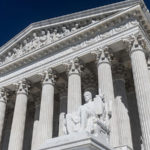With the Real ID burnout basically over, and Blizzard wisely chose to take the feedback backlash from the community seriously, there’s still some discussion to be had about why that feedback is inherently correct. The implementation of displaying people’s legal names on a forum would have a profound impact on all of the users, in a very negative way.
One especially important aspect of being part of the social community of the Internet is the ability to escape ourselves. While first-world countries have certainly grown into a strange new sense of privacy—the concept of private spaces and private lives—which is all but unheard of in small communities, especially tribal communities, it has actually become paramount in our lives. With employers looking to the web to discover our thoughts and natures, we find sudden necessity in cloaking our personal lives away from our professional lives.
In the programming world, whenever data is taken from the outside world we “escape” it. In a sort of way, we need to do that ourselves when our personal lives collide with other aspects of our social experience. Not all MMORPGs and social online experience need be known by everyone we know, and while we do throw away a lot of our privacy, those who choose to do this shouldn’t be forced into a basket with those who would. Having a legal name attached to every Internet post would certainly cause people to think twice about what they posted—but it also strips a lot of the fun and abandon out of having a personal life away from a professional life.
Ashelia over at Hellmode, Why Real ID is a Really Bad Idea, an excellent essay on some of the inherent dangers that Blizzard’s forum implantation of Real ID would create. She touches on the fact that we’re not tribal; we’re a supercommunity with a vast variety of subjective communities that have differing mores and morals. By expanding beyond the white-picket-fences of the tiny, incestuous society we mix borders and the only way to keep those borders from infringing on ourselves, we need to have a way to keep them separate. It’s the same reason why some people go out of their way to visit coffee shops outside of their comfort zones; to create oases of identity where they get the chance to control their own experience.
Jared Neuman at Technologizer.com, Four Lessons From Blizzard’s Real ID Snafu, points out that anonymity doesn’t always mean trolls. Certainly, it can provide cover for trolls, but this is the nature of the beast. The community created by those distant café’s may not reflect the greater supercommunity—and it certainly doesn’t reflect distant communities—but they’re not supposed to be interacting anyway. Smashing people’s ability to remain anonymous from the supercommunity while still keeping a reputation in the smaller community (out-on-the-town social life vs. MMORPG) remotes a significant part of what makes the experience so compelling. Warts-and-all, as the writer says, forums are a social experience whose health is not predicated on unveiling the people participating.
We voces are extremely happy that Blizzard has backed down.
This is certainly a case where the apparent benefits of such a decision would have been greatly outweighed by the fundamental flaws. We certainly would stop posting on Blizzard’s forums should we have to suffer having the world see our legal names alongside every comment. While we don’t care if our friends know that we find minor bugs in the game, or like to participate in round-robin stories, but really, since we get to decide what information we make public or private about ourselves we would stop showing up anywhere that wouldn’t show us the courtesy of letting us make that decision.


Privacy is a big deal online today, and the Real ID snafu with Blizzard certainly illustrates why we need to pay attention to erecting barriers. While Google and other social media mechanisms will continue to make it distinctly difficult for anyone with an online presence to keep their lives from commingling; there are a particular number of habits that we could adopt that would help a great deal.